HOME

What Did Joseph Campbell know?
A myth may be thought of as many different things; a metaphor, a psychological orientation, a story, a religious belief. Joseph Campbell imparts that myth is the “dictionary of the language of the soul”

Campbell was brilliant and the only professional critiques usually come from Christian "scholars"...whom he annoyed. He was one of the first, if not THE first to include Xtianity in the mythic mix! Campbell will live forever.
Apollo 8 Earthrise Our cultural perspectives on mythology, and to some extent religion, have been significantly influenced by the work of the twentieth century mythologist Joseph Campbell. But what did Campbell himself know?
Campbell's life work was to explore the mythology of our planet and to demonstrate the common threads between them. In The Hero with a Thousand Faces he described the mono myth (or the hero's journey), a narrative cycle that can be found embedded in all legends in whole or in part, and linked this to psychological roots.
In his epic four-volume work The Masks of God, he explored the specific cultural variations of these commonalities from an anthropological perspective. The guiding idea behind these books followed Adolf Bastian's concepts of “elementary ideas” (elementargedanken) and “folk ideas” (volkergedanken), which also influenced Carl Jung's concept of “archetypes of the collective unconsciousness”. The idea was that there are common elements (“elementary ideas”) to all our mythologies which are wrapped up in local, cultural baggage (“folk ideas”).
It is tempting, therefore, to claim that Campbell held beliefs that were entirely within what philosopher Charles Taylor calls “the imminent frame”, the physical and material universe we all live within. Yet it is clear from Campbell's lectures and books that he does allow for transcendence, and is not just a materialist (as many Christian critics have alleged).
While it is true that he interprets both mythology and religion as metaphors, this is not the same as denying something beyond the merely physical. If there are questions in this regard, they concern what transcendence meant to Campbell, and this is more challenging to establish.
Perhaps the most lucid Christian critic of Campbell's work is Dr. Tom Snyder, who dismisses any claim (as made by the journalist Bill Moyers) that Joseph Campbell “didn't have an ideology or a theology” and demonstrates that Campbell displays essentially pantheistic beliefs, that is, viewing all life as connected by a common spiritual thread, a divine impersonal force or consciousness.
This is a position which has a lot in common with Einstein's beliefs concerning God and religion, and indeed both Einstein and Campbell were critical of orthodox religion for not wholly dissimilar reasons. (Synder goes onto urge Christians to oppose the teaching of Campbell's work, a strange request for any follower of Jesus, since at no point does Jesus advocate enforcement of doctrine as a valid use of anyone's time).
It is not clear that Campbell would have described himself as a pantheist, although it is apparent that his notion of the divine is somewhere in this theological ballpark. In his last book, The Inner Reaches of Outer Space, he writes:
There is a Hindu tantric saying, nadevo devam arcayet, “by none but a god shall a god be worshiped”. The deity of one’s worship is a function of one’s own state of mind. But it also is a product of one’s culture. Catholic nuns do not have visions of the Buddha, nor do Buddhist nuns have visions of Christ. Ineluctably, the image of any god beheld... will be of a local ethnic idea historically conditioned, a metaphor, therefore, and thus to be recognised as transparent to transcendence.
The idea here is that an idea of God is not, and cannot be, truly God. Campbell re-iterates this view more forcefully:
The first step to mystical realization is the leaving of such a defined god for an experience of transcendence, disengaging the ethnic form of the elementary idea, for any god who is not transparent to transcendence is an idol, and its worship is idolatry.
This is a concept that can be found in many traditions, including Hinduism and Sufi Islam, but it is not as divorced from conventional Christianity as it may at first seem. Saint Thomas Aquinas in Summa contra gentiles (book I, chapter 5) states: “Then alone do we know God truly, when we know that He is far above all that man can possibly think of God.” Whenever we know that our idea of God trumps other people's, we have committed a form of idolatry, which all the Abrahamic faiths condemn.
One of the more interesting developments of this concept can be found in Eastern religious traditions, which differentiate between the worship of God (or gods) as representative of the deeper mystery, and the abandoning of these concepts in order to take upon the mystical journey within which any specific notion of God or of self dissipates. As Campbell explains:
In the vocabulary of yoga, the two modes of realization, at Chakra 6 and Chakra 7, are termed, respectively, of saguna brahman (the “qualified absolute”) and nirguna brahman (the “unqualified absolute”), while the two related orders of meditation are, respectively, savikalpa Samadhi (“discriminating absorption”) and nirvikalpa Samadhi (“undifferentiated absorption”).
“But this,” said Ramakrishna in discussion of the latter, “is an extremely difficult path. To one who follows it even the divine play in the world becomes like a dream and appears unreal; his ‘I’ also vanishes. The followers of this path do not accept the Divine Incarnation. It is a very difficult path. The lovers of god should not hear much of such reasoning.”
But here Campbell perhaps fails to listen to his own wisdom. A crucial idea expressed in these two ideas of “qualified absolute” and “unqualified absolute”are that they represent different paths, not that one is superior to the other. Thus while it may be the case that in “undifferentiated absorption”one moves beyond the details of specific beliefs and into the divine mystery, that does not disqualify “discriminating absorption” as a worthy approach to matters of faith.
Yet Campbell repeatedly criticises the Abrahamic faiths for insisting upon their own beliefs as factual, and in doing so he is denying particular ways of relating to divinity – specific versions of the “qualified absolute” in the yoga terms. Campbell complains:
From the point of view of any orthodoxy, myth might be defined simply as “other people’s religion”, to which an equivalent definition of religion would be “misunderstood mythology”, the misunderstanding consisting in the interpretation of mythic metaphors as references to hard fact.
Is this not, in effect, an attempt to enforce the pantheistic divine experience (“unqualified”) above the theistic divine experience (“qualified”)? Campbell seems to be requiring that people not be allowed to interpret metaphors as facts, but this is too much to demand of anyone – consider that our notions of both ourselves and of our nations are all metaphors, but these metaphors must still be gainfully deployed as “facts” if we are going to relate meaningfully with others. Not everyone can walk the path of a seeker of the divine mysteries; for many, such is the gate to madness.
Religious tolerance requires that we allow each individual to interpret the divine mysteries of existence in their own terms, something that Campbell clearly understands, but balks at when it means allowing traditional Christianity (or any of the Abrahamic faiths) the freedom to interpret their religious narratives as historical facts.
The frustration for Campbell, perhaps, was being trapped in a culture (mid-twentieth century United States) which on the one hand was dominated by traditional Christian beliefs, and individuals who attempted to force those beliefs on others, and against which the only opposition seemed to be coming from an equally dogmatic attempt to discard religious teachings entirely. He writes:
It all comes from misreading metaphors, taking denotation for connotation, the messenger for the message, overloading the carrier, consequently, with sentimentalized significance and throwing both life and thought thereby off balance. To which the only generally recognized correction as yet proposed has been the no less wrongheaded one of dismissing the metaphors as lies (which indeed they are, when so construed), thus scrapping the whole dictionary of the language of the soul (this is a metaphor) by which mankind has been elevated to interests beyond procreation, economics, and “the greatest good of the greatest number”.
Thus, without meaning to, Campbell ends up guilty of the crime he accuses orthodox religion of committing – he demands that people with orthodox beliefs share his own perspective on mythology and religion. His position is more compassionate than many of those he criticises, but it falls short of the standards of freedom of belief that must underlie a cosmopolitan society, willing to accept all paths as valid provided they do not enforce their beliefs on others. Campbell's philosophy that you should “follow your bliss” (which he derived from the Upanishads, and was intended to advocate personal spiritual truth, not hedonism) seems strangely blinkered in this one particular regard. He suggests:
If you follow your bliss, you put yourself on a kind of track that has been there all the while, waiting for you, and the life that you ought to be living is the one you are living. Wherever you are – if you are following your bliss, you are enjoying that refreshment, that life within you, all the time.
But it is in no way clear that the “bliss” of an orthodox Christian cannot be found in worship of their God-concept and the upholding of their own traditional beliefs. The assumption that it cannot is a strange denial of free will.
What Campbell wanted was not that everyone adopt his beliefs, but only that we might develop new metaphors and beliefs that recognised our world as one – his criticism of orthodox religion being levelled principally at their insistence on enforcing tribal boundaries that he saw as artefacts of the past. He saw this as a cultural battleground initiated by our first steps away from the planet:
The space age demands that we change our ideas about ourselves, but we want to hold on to them. That is why there is a resurgence of old-fashioned orthodoxy in so many areas at the present time. There are no horizons in space, and there can be no horizons on our own experience. We cannot hold on to ourselves and our in-groups as we once did. The space age makes that impossible, but people reject this demand or don’t want to think about it. So they pull back into one true church, or black power, or the unions, or the capitalist class.
A critical symbol for him in this regard was the famous Apollo 8 Earthrise photograph, which appears at the head of this piece. He says in this regard:
There are no horizons – that is the meaning of the Space Age. We are in free fall into a future that is mysterious. It is very fluid and this is disconcerting to many people... Earthrise is like all symbols. They resemble compasses. One point is in a fixed place but the other moves to the unknown. The fear of the unknown, this free fall into the future, can be detected all around us. But we live in the stars and we are finally moved by awe to our greatest adventures.
In this, Joseph Campbell's vision looked both beyond and within the mythological and religious traditions of our diverse planet, and found there both a reflection of who we are as a species, and a glimpse of what we might become.
Inward Journey: East and West
Realize, you are that
Charanjeet Singh Lamba said.
It is an established truth that from the sun (center of the solar system) is derived all force, every power and variety of phenomena that manifests itself upon Earth. Solar system passes through one sign of celestial zodiac in 2,160 years (a twelfth part of total orbit of 25,920 years), hosting an astral influx peculiar to a particular zodiac sign. No two signs are alike in nature or quality, hence the passage of the solar system from one sign into another causes a change of polarity in planetary action.
The earth, in an annual passage orbiting the sun, receives the harmonious or discordant vibrations of this astral influx in multi-dimensions. Because all vibrates harmoniously to the stellar (astral) cause, hence every 2160 years a new astral influx is been manifested on Earth, unto we humans. In this new era, upon whose threshold we now stand, the winter solstice, 21st December 2012, the vibrations will be more intense and enhanced. This is called ‘a mass-ascension’ or ‘the great shift’ in scientific lexicon.
To illustrate: In December 2012, the sun shall pass from phase of one zodiac, Pisces, into another, Aquarius. This is beginning a new cycle of dynamism through galactic and quantum forces, interacting through heliosphere and heliopause (periphery of the solar system within the orion arm of galaxy), beyond which exists all zodiacs, and much more about astro-world.
Yes! It is the doomsday, not for the earth, but for the ‘old cyclic phase’ of one of the zodiac signs, Pisces, where a redundant livingness is witnessed at large across the globe. But the same is a dynamic incarnation for a ‘new cyclic phase’ through another zodiac sign, Aquarius, thereby transiting a move to higher vibration, a new astral-influx, where earth as a whole, inclusive of humans in an enhanced form will make a difference. Human knowledge and acuity of mind are for sure to gain enhancement, through this doomsday! Regards and greetings, Charanjeet Singh Lamba,
gnosiologist, astral scientist















































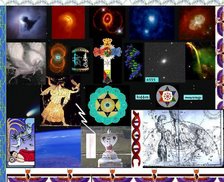
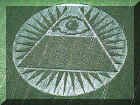
































































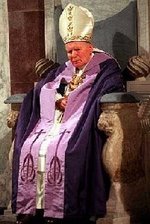








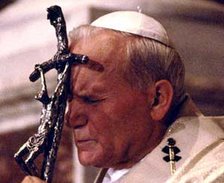



































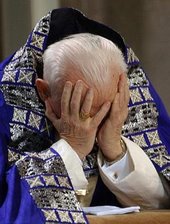















































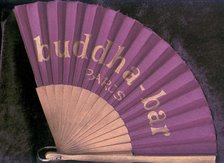
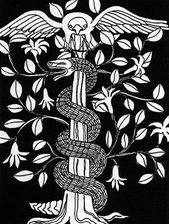








No comments:
Post a Comment